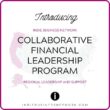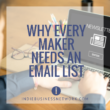What do you see when you envision the successful business of the future? Do you see billion dollar empires maintained by nameless, faceless corner office executives who earn money by negotiating the best overseas manufacturing deals? I don't.

I see real people making real products and providing real services to people with whom they have a real relationship. I don't have any statistics to back this up, but I don't think I need any. I see it happening all around me, in towns and cities across the country. I see it on FaceBook and Yelp. I see it on Twitter, YouTube and LinkedIn. I see it at my social networking site and I see it when I go to conferences like Chick Fil A Leadercast and meetups here in Charlotte and in other towns. So what does this mean for micro-businesses like yours? It means you must brand not only the products and services you sell, but you must also brand yourself. Here's what I mean.
In addition to the brand name you use to market your products and services, you must brand yourself. For example, the Starbucks brand has helped make Howard Schultz a wealthy man, but it's the Howard Schultz brand that will help create new opportunities for Howard Schultz — opportunities that transcend the coffee franchise.
The product is a platform for the person. Not convinced?
Consider:
Zappos CEO Tony Hsieh, brands himself via Delivering Happiness, the book and the movement;
Carol's Daughter founder Lisa Price brands herself on HSN as Carol's Daughter Beauty by Lisa Price;
Spanx founder Sara Blakely brands herself through sarablakelyfoundation.com, which points to a page at the Spanx website;
Sir Richard Branson points the richardbranson.com domain to his personal blog at the Virgin site.)
In each case, the leader of the company is intertwined with the branded products the company sells.
The Product is a Platform for the Person
And consider that Howard Schultz and Tony Hsieh have both authored best selling books — each with covers featuring the logos of the companies they lead, as prominently as their names.
I believe that each of these people will eventually create a personal website or blog of some kind that is separate and apart from the brands they lead, and they will use it to leverage their work experiences to create new opportunities for themselves — write more books, enjoy more speaking gigs, offer services based on their expertise, etc.
At least that's what I'd recommend they prepare to do if they were my clients, and I think you should do it too.
The business of the future is successful because it offers quality products, yes. But it is also successful because its leader puts his or her authentic self where the business is.
The brand lays it on the line for the leader, and the leader lays it on the line for the brand.
The successful business of the future is led by a person who figures in at least as prominently as the brand. At least that's what I think.
Question: What do you think?



